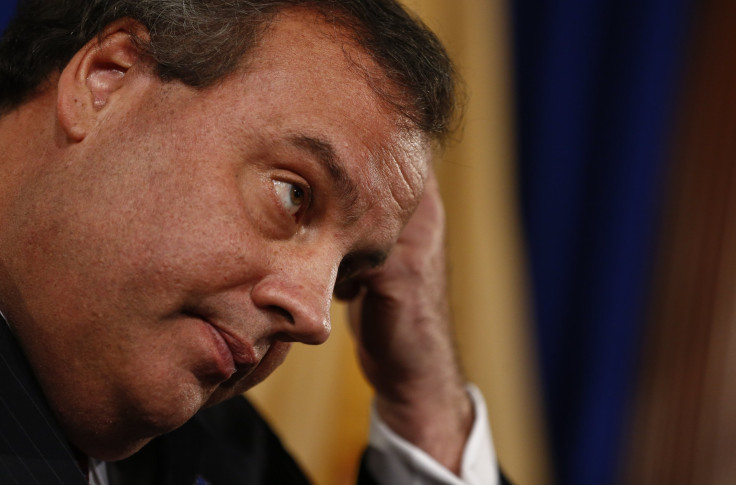Chris Christie Faces New Jersey Bill Restricting Campaign Cash From Firms Managing Pension

Chris Christie may have to change the way he does business. New Jersey lawmakers have sent a bill to the Republican governor's desk that would keep state pension money from going to firms whose executives make donations to federal political organizations -- including, potentially, Christie's presidential campaign.
The Christie administration has invested millions of dollars of New Jersey pension money with firms whose executives donated to the Republican Governors Association and the Republican National Committee, both of which spent heavily in New Jersey in support of Christie’s gubernatorial campaigns. The bill, which would effectively deter such campaign contributions from those firms' executives, passed both legislative chambers by large majorities.
Since 2005, New Jersey has had strict rules prohibiting public pension money from being managed by firms whose executives make political donations to lawmakers or to "any political party or political committee organized in the state." The idea is to guarantee that pension investment decisions are made purely on the basis of merit and are not influenced by political campaign contributions.
But in March 2014, the Christie administration tucked a provision into the state’s administrative code that attempted to prevent the rule from applying to donations to "federal or national campaign committee(s)" that operate in New Jersey. Though the code continued to include other language restricting such donations, the change created a legal gray area for donations made after the change was enacted.
Citing International Business Times stories on RGA and RNC donations from executives at firms managing state pension money, Democratic state Sens. Shirley Turner and Peter Barnes introduced legislation in October to end any legal ambiguities potentially created by the Christie administration's 2014 language change. The senators' bill would explicitly force the so-called pay-to-play restrictions to “apply equally to contributions to any federal or national committee or a non-State political committee" that is organized to operate in New Jersey. Their legislation passed the state senate in October by a vote of 25-8 and passed the Assembly last week by a vote of 53-15. The majorities voting for the legislation included lawmakers from Christie's own party -- three senate Republicans and 11 Assembly Republicans voted yes on the bill.
“This administration shouldn’t be playing politics with the public employees’ pensions,” Turner said in a statement. “Retired workers deserve the fund allotted to them, not to be used for political gain. This is why selecting investors on performance and merit rather than campaign contributions is important, especially as investments should be made for the best financial reasons.”
Christie’s office did not respond to IBTimes’ request for comment about the legislation, which now awaits his signature or veto. The Philadelphia Inquirer reported that in September, a Christie administration official at the Division of Investment said the bill “would basically shut down the alternative portfolio” of the state’s investments in hedge funds, private equity, real estate and venture capital.
As one of the largest public retirement systems in the world, New Jersey's pension fund does business with many major financial firms, so the legislation, if signed into law, could restrict campaign contributions to a Christie presidential campaign from a wide swath of Wall Street, assuming Christie's campaign -- like the RNC and RGA -- ends up operating in New Jersey. (In January, Christie aides created a new federal political action committee whose honorary chairman is Christie whose address is located in New Jersey, according to campaign finance records.)
That new state law would be in addition to a narrower Securities and Exchange Commission rule designed to restrict executives at firms managing state pension money from donating to lawmakers who have the power to influence state pension investments. Among prospective presidential candidates, sitting governors Christie and Wisconsin's Scott Walker both oversee the boards that make state pension investments.
When Businessweek asked Christie’s top political aide, William J. Palatucci, how that SEC rule would affect candidates running for president in 2016, he said that “there is no way around it and there are no loopholes.” For Christie, the New Jersey bill could add an additional layer of explicit state prohibitions to the SEC restrictions he would already face if he runs for the White House.
Under both the state proposal and federal rule, executives at financial firms managing New Jersey pension money would still technically be allowed to give money to Christie's presidential campaign. But if those donations were made, the rules would prevent those executives' firms from receiving fees for managing state pension money. The restriction, in short, is designed to be costly enough to deter the campaign contributions in the first place.
© Copyright IBTimes 2025. All rights reserved.






















